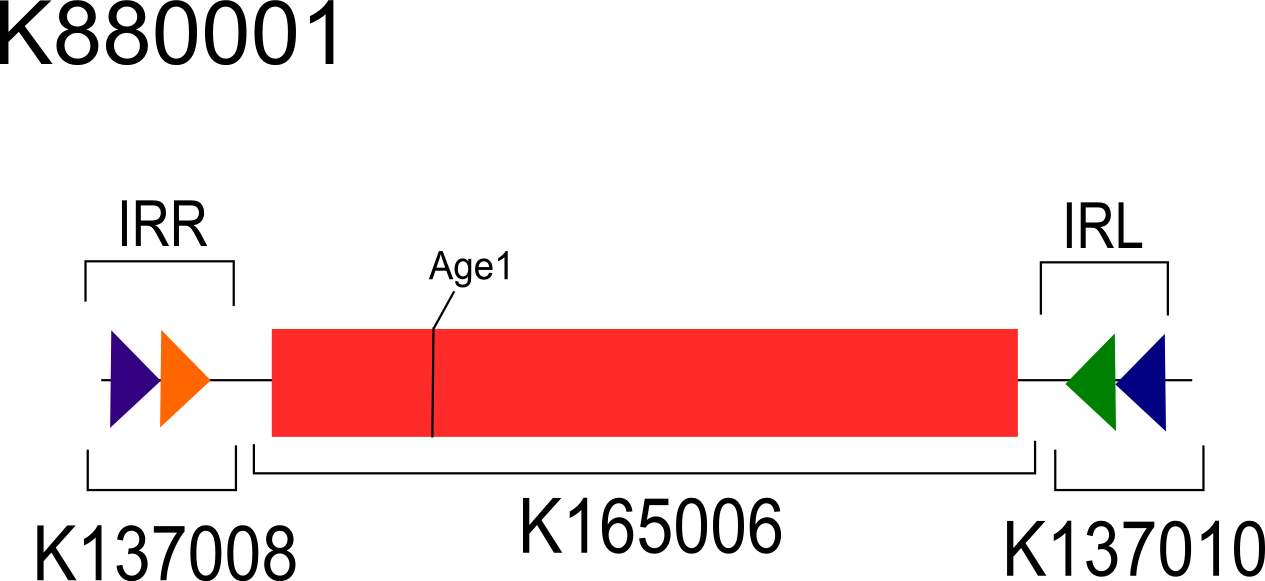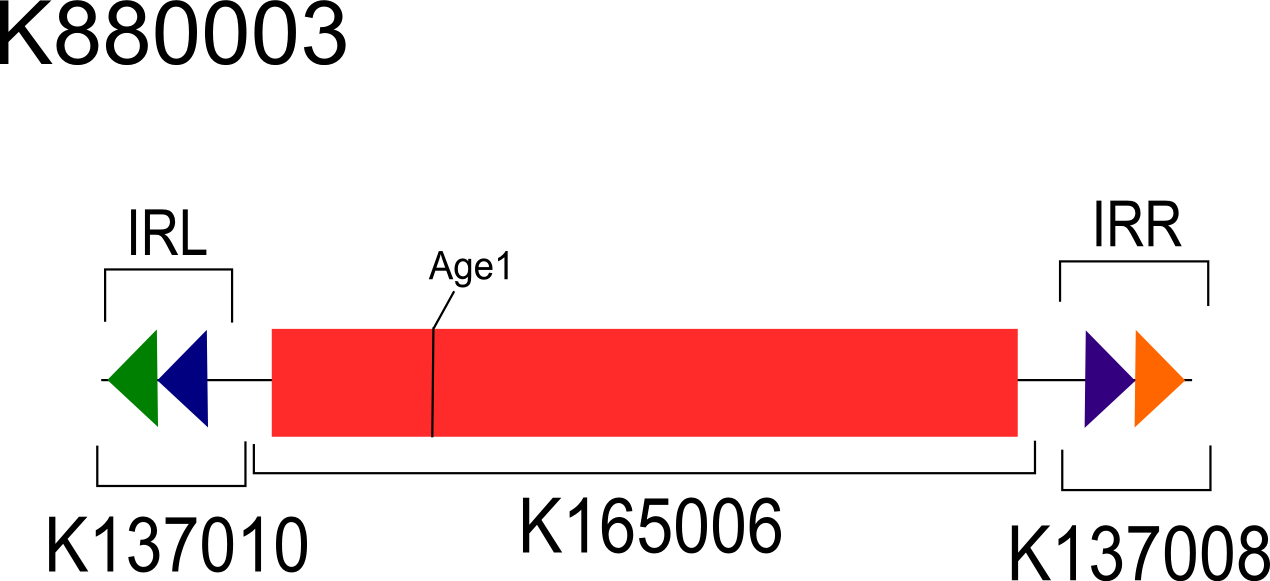Team:Michigan/Results
From 2012.igem.org
(Difference between revisions)
| Line 44: | Line 44: | ||
Negative Fluorescent Reporter (BBa_K137058) Data | Negative Fluorescent Reporter (BBa_K137058) Data | ||
</h2> | </h2> | ||
| + | |||
| + | To initially test the FimE recombinase, we utilized a reporter created by the CalTech ‘08 iGEM team (BBa_K137058) for the same purpose. The K137058 reporter in the vector pSB3C5 was co-transformed in 10-beta <i>E. coli</i> (NEB) with strong, constitutively expressed FimE (K880005-K137007) in the vector pSB1A2. Despite several co-transformation trials, no fluorescence was observed in contrast to CalTech ‘08’s results. | ||
<h2> | <h2> | ||
Revision as of 00:17, 4 October 2012
Introduction
In order to test the effectiveness of the recombinases used in our system, we developed two assays -- an “asymmetrical digest” reporter and a fluorescence reporter. The former is used to directly test the inversion of the target DNA region, while the latter is used to demonstrate inversion induced protein expression.The Asymmetrical Digest Reporters
The two asymmetrical digest reporters in their unflipped state (invertible by FimE) are shown in figures 2 and 3. These reporters rely on an off-center AgeI restriction site which will yield fragments of varying size depending on the orientation of the inversion region. Table 1 shows the expected sizes of the fragments in each orientation. The differences between the reporters are discussed below.The Fluorescent Reporters
The fluorescent reporters, show in in figures 3 and 4, have a constitutive tetR promoter within the inversion site, allowing for the expression of GFP in the flipped orientation.
 "
"



